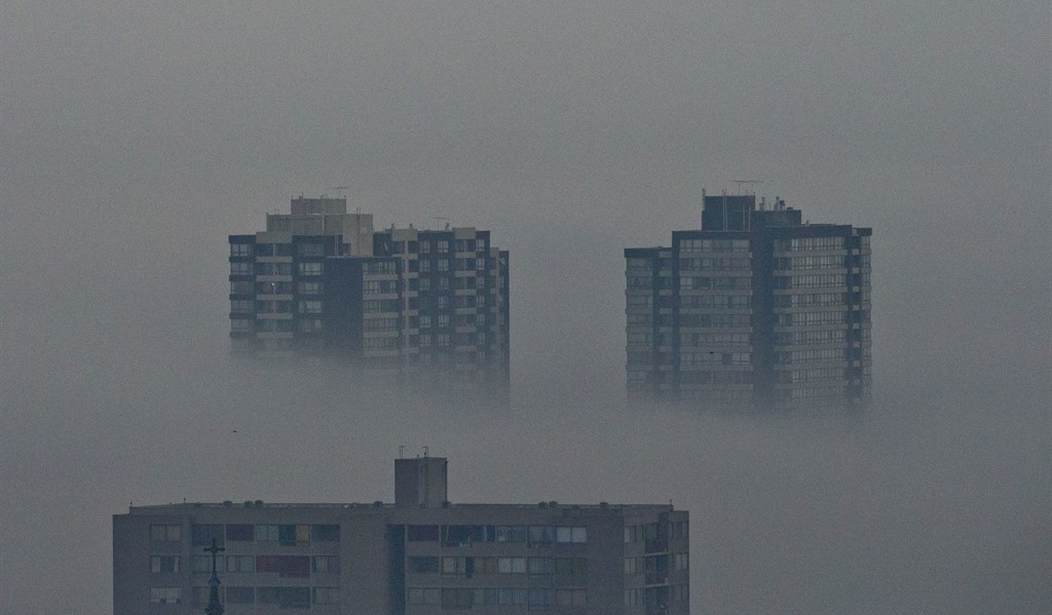Why did millions of British citizens vote to exit the European Union?
Were they sick and tired of being ruled by nameless, faceless, unelected, unaccountable bureaucrats in Brussels? Did they pine for the good old days of Magna Carta and the English Bill of Rights? Were they reasserting the centuries-long British tradition of government by consent of the governed?
Nope.
Global warming.
No, your eyes aren’t playing tricks on you. Global warming—manmade, dangerous global warming—drove all those Brits to the insanity of Brexit.
Says who?
Says Joe Romm, perennial climate alarmist.
In a column at ThinkProgress.org, Romm wrote:
… a major 2015 study confirmed: “Human-caused climate change was a major trigger of Syria’s brutal civil war.” This study found that global warming made Syria’s 2006 to 2010 drought two to three times more likely. “While we’re not saying the drought caused the war,” the lead author explained. “We are saying that it certainly contributed to other factors—agricultural collapse and mass migration among them—that caused the uprising.”
And that mass migration ultimately fueled the mass refugee crisis of the last two years, a crisis the world has utterly failed to figure out how to handle.
And those migrants, Romm quotes NBC news political director Chuck Todd saying, “had an outsized impact on the Brexit.”
Okay, I suppose the rapid influx of Syrian migrants—many giving all the appearance of radical Islamic jihadists rather than suffering refugees—into member states of the European Union, giving them automatic access to all EU states, including the United Kingdom, making the title of British journalist Melanie Phillips’s Londonistan perfectly understandable, definitely played a role in the vote. Whether it was more important than resentment at the EU’s imposing thousands of rules on the minutest aspects of Britons’ lives, I don’t know. I’ll not challenge that.
Recommended
But I will challenge Romm’s claim—and that of the study he cites—that human-caused climate change was a major trigger of the civil war that led to the refugee crisis. The study said:
Century-long observed trends in precipitation, temperature, and sea-level pressure, supported by climate model results [emphasis added], strongly suggest that anthropogenic forcing has increased the probability of severe and persistent droughts in this region, and made the occurrence of a 3-year drought as severe as that of 2007-2010 2 to 3 times more likely than by natural variability alone.
It concluded its summary, “human influences on the climate system are implicated in the current Syrian conflict.”
Not surprisingly, global warming alarmists jumped on the news.
Romm blamed the rise of ISIS on it. Eric Holthaus, writing in Slate, wrote, “One of the most terrifying implications [of climate change] is the increasingly real threat of wars sparked in part by global warming. New evidence says that Syria may be one of the first such conflicts.”
Romm and Holthaus both cited Retired Navy Rear Adm. David Titley, a meteorologist who’s now a professor at Penn State University, as saying, “you can draw a very credible climate connection to this disaster we call ISIS right now.”
But the case isn’t quite so clear. Holthaus also cited Titley as saying that after decades of poor water policy “there was no resilience left in the system” and “It’s not to say you could predict ISIS out of that, but you just set everything up for something really bad to happen.”
A “climate connection” isn’t the same thing as a “manmade global warming connection,” and “climate model results”aren’t exactly convincing support for anything.
Consider first the measures of temperature and rainfall for the region. Are those two factors enough to explain the drought—or even much of it? This graph in the study Romm cites suggests not.
In the Fertile Crescent, of which Syria is part, the Palmer Drought Severity Index (which uses a scale from +3 to -3) worsened from about positive 0.2 to about negative 0.8 since 1930. That’s significant but not likely enough to explain the severe 2007–2010 drought.
More important, what caused the drought?
The Fertile Crescent experienced about a 7% decline in winter rainfall since 1930, most before 1980, leaving only about 3% during the period of allegedly manmade warming. Not much there to explain.
If you accept the figures from the Climatic Research Unit, home of Climategate, annual surface temperature in the Fertile Crescent rose by about 0.5 C° since 1930, again about half before 1980, leaving about 0.25 C° since then, but that’s not enough to explain the drought.
So, with so little change in precipitation and temperature, why the major increase in drought, and, more important, what caused the conflict over water?
Part of the answer is embedded in Titley’s reference to “decades of poor water policy.” Got that? Poor water policy.
But there’s a second, more important culprit. And though it’s obvious from the bottom portion of the graph, neither Romm nor Holthaus nor Admiral Titley mentions it.
From 1930 to 2010, Syria’s population multiplied 11 times, from about 2 million to about 23 million. At the same time, its industrial and agricultural water use multiplied even more. Eleven times as many people coupled with burgeoning industry and agriculture mean you’re going to use a lot more water—and hence face water shortages, especially with “poor water policy,” even without any rise in temperature or decline in rainfall.
But assume for a moment that higher temperature and lower rainfall, not population growth, drove the drought. That doesn’t explain what caused either one, and the U.N. Intergovernmental Panel on Climate Change concluded in its report on extreme weather that it was impossible to demonstrate a connection between global warming, manmade or natural, and increasing frequency or severity of extreme weather events, including droughts.
Even assuming that global warming contributed somewhat to the rise in annual surface temperature and the fall in winter rainfall, that doesn’t mean human activity drove it. The computer models on which the IPCC depends simulate warming from rising atmospheric CO2 at double (and more) the observed rate, and none simulated the absence of observed warming from early 1997 to late 2015, so they’re wrong and provide little or no rational basis for any claims about the magnitude of human contribution to global warming.
At most, human activity has contributed only a fraction of the global warming observed over the last 30, 50, 100, or 150 years. That means it can have contributed only a fraction of the half-degree increase in annual average surface temperature in the Fertile Crescent and only a fraction of the slight decline in rainfall, and hence only a fraction of a fraction of the increased drought, and a fraction of a fraction of a fraction of the conflict over water.
Rising population coupled with “poor water policy” is a far greater cause of conflict for access to water in Syria.
And as causes of Syria’s civil war, those pale into insignificance compared with religio-political conflicts.
You decide. Is Joe Romm right to claim that human-induced global warming caused Brexit?

























Join the conversation as a VIP Member